
7 Ways to Reduce Stress and Anxiety During Stay at Home Orders
Stress and anxiety have increased for almost everyone while we are attempting to practice social distancing and self-isolation to protect ourselves from the spread of COVID-19. Stress is a feeling of physical or emotional tension while anxiety is a natural response to stress and a feeling of fear of what is about to happen. It is important for us to remember to practice emotional self-care during these stressful times. Here are 7 ideas that can help you manage stress and anxiety while you are at home.
1. Aromatherapy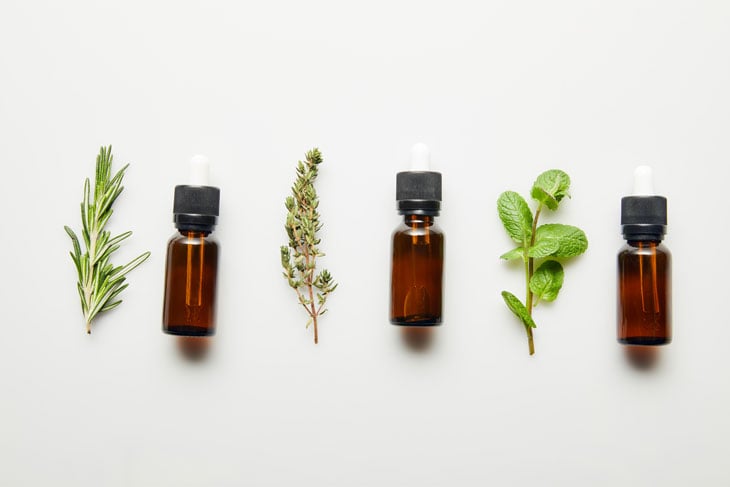
Aromatherapy uses aromatic essential oils to improve the health of the body, mind, and spirit. It can enhance both physical and emotional health. Many studies have shown that aromatherapy can decrease anxiety and improve sleep.
Some scents that have calming effects are lavender, rose, bergamot, frankincense, sandalwood, ylang ylang, and orange blossom.
You can use essential oils, scented candles, diffusers, aromatic spritzers, inhalers, bathing salts, body oils, creams, and massage lotions to practice aromatherapy.
2. Spending Time With Your Pets
Playing with or petting your furry friend can reduce stress and can also help reduce feelings of isolation and make us feel more connected. Petting our dogs or cats increases the production of neurotransmitters in the brain, which lowers stress.
3. Gratitude Journaling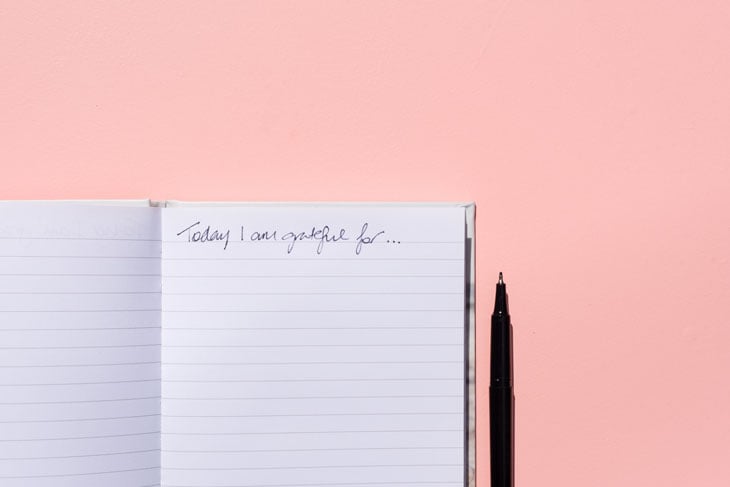
Gratitude journaling is a way to be aware of the things in our lives that we can be grateful for. This journaling practice can help boost positive moods in ourselves and in others. Simply take 5 minutes once a week to write down who and what you are grateful for. You can share your gratitude with others, which in turn can lead them to tell you what they are grateful for and create a positive conversation. You will also have this journal to look through later and remember all that you are grateful for.
4. Listening to Soothing Music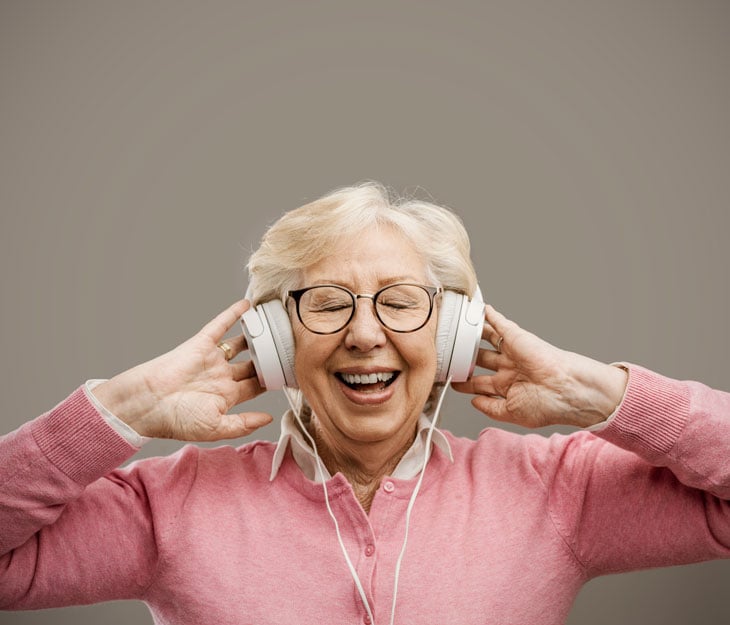
Listening to music can be an effective stress reducer. Soothing music can slow the pulse and heart rate, lower blood pressure and decrease the levels of stress hormones and distract us from our worries. Adding music to our day is a small effort that can reduce stress.
Music can be introduced into many activities of daily living. You can listen to music in the car, while you clean or do chores, while you take a bath or get ready for the day. Now with smartphones, music can be more portable and you can listen to music while you take a walk or walk the dog.
5. Mindfulness Meditation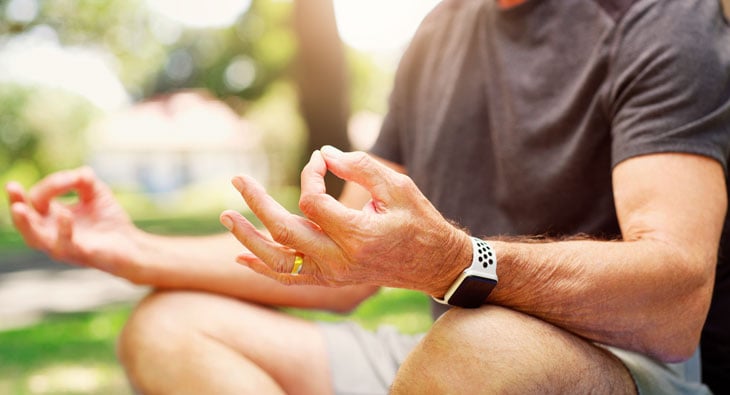
Mindfulness meditation is a mental training practice that can be helpful in stressful situations. It brings you and your thoughts into the present, focusing on emotions, thoughts, and sensations that you're experiencing "in the moment."
Cathy Wong’s article, How to Practice Mindfulness Meditation gives simple instructions on how to complete a mindfulness meditation.
6. Deep Abdominal Breathing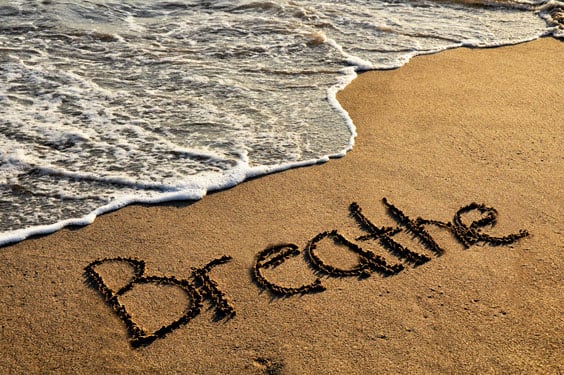
Deep abdominal breathing increases the supply of oxygen to your brain and promotes a feeling of calmness. Deep breathing activate the body’s relaxation response and research shows that abdominal breathing for 20 to 30 minutes each day reduces anxiety and stress.
Breathing Exercise:
- Find a comfortable position (you may stand, sit down, or lay down).
- Place one hand on your chest and the other on your abdomen. Inhale slowly and deeply through your nose. Keep your shoulders relaxed. Your abdomen should expand, and your chest should rise very little.
- Exhale slowly through your mouth. As you blow air out, purse your lips slightly, but keep your jaw relaxed.
- Repeat this exercise for several minutes.
7. Yoga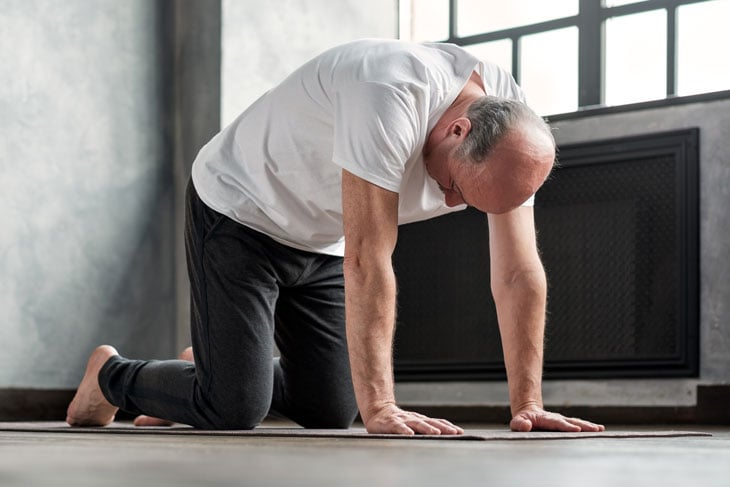
Yoga is a popular method of stress relief and exercise. Research has found that yoga can enhance mood, lower cortisol levels, blood pressure and heart rate, and modulates the stress response.
Sherry Zak Morris, a certified yoga therapist, offers several chair yoga videos that are free online at YouTube that you can utilize to participate in your own home.
Here is a link to one of her videos: https://youtu.be/VKm9lmZO0ik
For more information on the preventive measures in place at PSL communities amidst COVID-19 outbreaks, as well as useful resources for residents and family members, please visit www.psl.org/updates.
About Tinika Wilson
Tinika Wilson is Social Services Director and Chapelwood Manager at Ware Presbyterian Village in Oxford, PA. She earned her Bachelor’s in Social Work at Millersville University and is currently pursuing her Master’s in Social Work from Arizona State University. Tinika has 14 years of experience working in skilled nursing and CCRC settings. She enjoys baking and spending time with her 4 children, 4 grandchildren and 2 dogs.


